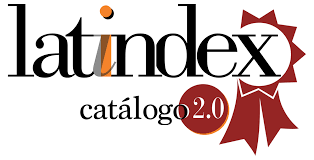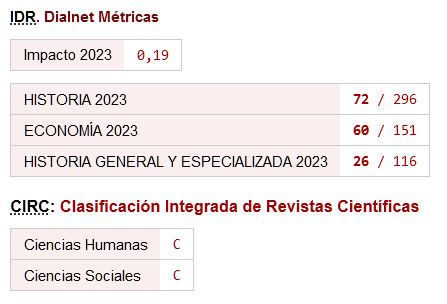Luca Pacioli, algebra, and double entry
DOI:
https://doi.org/10.26784/issn.1886-1881.v18i1.414Palabras clave:
Double-Entry, Pacioli, Algebra, Assets, Expenses, Profit, Summa, TreatiseResumen
This paper proposes that Pacioli, an accomplished mathematician, recognised that the Venetian method of bookkeeping had an algebraic underpinning, although, when writing his treatise, he converted this algebra into rules. The algebra that he may have used is deduced from a combination of his own words - derived from the translation by Geijsbeek, checked against that of Von Gebsattel and other translations - with quotations from the literature. Perhaps this is the ‘buried treasure waiting to be rediscovered’ referred to by Macve in ‘Pacioli’s Legacy’(Macve, 1996, 22). Chapter 23 in the treatise is central to this paper. Here Pacioli advises a merchant on how to run a store, using an approach that is now known as ‘the entity theory’. Pacioli also advised the merchants to exclude information about their private possessions from the public domain and this paper describes how this could be achieved. The paper ends with a presentation in the Appendix of the evolution of double entry expressed
algebraically in tabular form, along with an illustration of a matrix method approach to recording transactions.
Descargas
Citas
Bady, D., (1997), "The Art of Something - Arithmetic in the Merchant of Venice", Shakespeare Quarterly 36 no.1:10-30 https://doi.org/10.2307/2870078
Cronhelm, F. W., (1818). "Double Entry by Single." Littleton, A. C., Yamey, H. S. (1956), "Studies in the History of Accounting" Richard D Irwin, reprinted in 2013 by Isha Books: 310
Cripps, J., (1994). "Particularis de Computis et Scripturis. A Contemporary Interpretation". The Pacioli Society, Seattle.
Crosby, A. W., (1997). "The Measure of Reality. Quantification and Western Society 1250-1600". Cambridge University Press: 215 https://doi.org/10.1017/CBO9781107050518
Deane, G., Clarke, F., and Capalbo, F., (2016). "Pacioli's double entry - part of an intellectual and social movement." Accounting History Review Vol 26 no. 1 5 -24: 12 https://doi.org/10.1080/21552851.2015.1129083
De Morgan, A., (1869), "On the Main Principle of Bookkeeping. In the "Elements of Arithmetic", London, James Walton, Littleton, A. C., Yamey, H. S. (1956), "Studies in the History of Accounting" Richard D Irwin, reprinted in 2013 by Isha Books:298
Durham, J.W., (1992). "The Introduction of' 'Arabic' numerals in European Accounting", Accounting Historians Journal, 19, 2, 1992: 47-51. https://doi.org/10.2308/0148-4184.19.2.25
Ellerman, D. (1985). "The Mathematics of Double Entry Bookkeeping." Mathematics Magazine, Vol. 58, (4): 226-233. https://doi.org/10.1080/0025570X.1985.11977191
Ellerman, D. (1986). "Double Entry: Multidimensional Accounting." Omega Int. Mgmt. Sci. Vol. 14 (1): 13-22 https://doi.org/10.1016/0305-0483(86)90004-6
Ellerman, D. (2014). "On Double-Entry Bookkeeping: The Mathematical Treatment", Accounting Education: An International Journal, 23:5, 483-501, https://doi.org/10.1080/09639284.2014.949803
Geijsbeek, J. B. (1914). "Ancient Double Entry Bookkeeping." Reprinted by 'Forgotten Books' 2012
Gilman, S. (1930), "Accounting Concepts of Profit." The Ronald Press Company
Heeffer, A. (2010). "On the Curious Historical Coincidence of Algebra and Double-Entry Bookkeeping." In François, K. Löwe, B. Müller, T. and Van Kerk. (eds), Foundations of the Formal Sciences VII, Bringing together Philosophy and Sociology of Science (London: College Publications). Vol. 32: 109-130
Hernandez-Esteve, E., (1994). "Comments on Some Obscure or Ambiguous Points of the Treatise De Computis et Scripturis by Luca Pacioli." The Accounting Historians Journal Vol. 21 no. 1 June. https://doi.org/10.2308/0148-4184.21.1.17
Jackson, J. G. C., (1956). The History of Methods of Exposition of Double Entry Bookkeeping in England", in Littleton, A. C., Yamey, H. S., (1978), ""Studies in the History of Accounting" Richard D Irwin, reprinted in 2013 by Isha Books: 312
Kemeny, J. G., Schleifer Jr., A., Snell, J. L., Thompson, G. L., (1962). "Finite Mathematics with Business Applications", Prentice-Hall: 346-36
Kirkegaard, H. (1997). "Improving Accounting Reliability, Solvency, Insolvency, and Future Cash Flows." Quorum Books: 56-57
Lawrence, A. (1914). "Introduction" "Ancient Double Entry Bookkeeping." Reprinted Forgotten Books 2012
Lee, G. A., (1975). "The Concept of Profit in British Accounting, 1760-1900." The Business History Review, vol. 49, no. 1, pp. 6-36. https://doi.org/10.2307/3112960
Lerner, J. M., Gokarn, R. (2004). "Bookkeeping and Accounting." Based on Schaum's "Outline of the Theory and the Problems of Bookkeeping and Accounting." McGraw Hill 3rd Edition: 7
Littleton, A. C., Yamey, H. S. (1956). "Studies in the History of Accounting" Richard D Irwin, reprinted in 2013 by Isha Books: 31
Macve, R. H. (1996). "Pacioli's Legacy", in T.A. Lee, R. Bishop and R.H. Parker (eds.), Accounting History from the Renaissance to the Present, New York: Garland: 3-30
Malet, A. (1984). "The Genesis of Group Theory in the Works of Galois" (Catalan), Butl. Sec. Mat. 17: 52-88
Mattessich, R., (1998). "From Accounting to Negative Numbers: A Signal Contribution of Medieval India to Mathematics". The Accounting Historians Journal Vol. 25 (2): 129-145 https://doi.org/10.2308/0148-4184.25.2.129
Mattessich, R., (2005), "A concise history of analytical accounting: examining the use of mathematical notions in our discipline". De Computis Vol.2, Num. 2, 2005
https://doi.org/10.26784/issn.1886-1881.v2i2.230
McCarthy, P. Sangster, A. & Stoner, G. (2008). "Pacioli and Humanism: Pitching the text in Summa Arithmetica." Accounting History 13 (2): 184 https://doi.org/10.1177/1032373207088178
Peters, R. M. & Emery, D. R., (1978). "The Role of Negative Numbers in the Development of Double-Entry Bookkeeping." Journal of Accounting Research 16 (2): 424 - 426
https://doi.org/10.2307/2490577
Phillips, Libby, & Libby (2011). "Fundamentals of Financial Accounting" McGraw Hill 3rd Edition: 56,57, 104
Rambaud, A. (2019). "At the origins of Capital: Capital in Luca Pacioli's work, between accounting and economics, between the ancient and modern worlds" Paper presented at the EAA conference in Paphos May 2019: 20
Roberts, A. T. (1955). "The Propriety Theory and the Entity Theory of Corporate Enterprise." LSU Historical Dissertations and Theses.
https// digitalcommons.lsu.edu/gradschool_disstheses/132, 168 - 170
Roover, R. de. (1956). "The Development of Accounting prior to Luca Pacioli according to the Account-Books of Medieval Merchants." In Littleton, A. C. and Yamey, B. S. (eds.), Studies in the History of Accounting: Arno Press a New York Times Company New York: 115.
Sangster A., Stoner G. N, McCarthy P. (2008). "The Market for Luca Pacioli's Summa https://doi.org/10.2308/0148-4184.35.1.111
Arithmetica" Accounting Historians Journal Vol. 35 No.1 June 2: 111- 134 doi.org/10.2308/0148-4184.35.1.111
Sangster, A. (2010). "Using accounting history and Luca Pacioli to put relevance back into the teaching of double entry" Accounting Business and Financial History. Vol.20, No 1, March 2010: 23-39 https://doi.org/10.1080/09585200903504215
Sangster, A.; Stoner, Greg; McCarthy Patricia, (2011). "In Defense of Pacioli. Accounting Historians Journal. 38(2). https://doi.org/10.2308/0148-4184.38.2.105
Sangster, A. (2012). "Locating the Source of Pacioli's Bookkeeping Treatise." Accounting Historians Journal Vol. 39 (2): 97-110. https://doi.org/10.2308/0148-4184.39.2.97
Sangster, A. (2016). "The Genesis of Double-Entry Bookkeeping", The Accounting Review Vol 91(1); 259-31. doi.org/10.2308/accr-51115 https://doi.org/10.2308/accr-51115
Sangster, A, Rossi, F (2018). "Benedetto Cotrugli on Double Entry Bookkeeping". De Computis Spanish Journal of Accounting History 15 (2) Dec.; 22 - 38 doi.org/10.26784/issn.1886-1881.v1512.332 https://doi.org/10.26784/issn.1886-1881.v15i2.332
Sangster, A. (2021). "The life and works of Luca Pacioli (1446/7 -1517)"; Abacus Vol 57 ,No. 1, 126-152 https://doi.org/10.1111/abac.12218
Scorgie, M. E., (1989., "The Role of Negative Numbers in the Development of Double Entry Bookkeeping: A Comment." Journal of Accounting Research 27 (2): 316- 318.
https://doi.org/10.2307/2491239
Sprague, C. E., (1907- 1908). "The Philosophy of Accounts" 5th edition, Ronald Press 1922:57. reprinted by Forgotten Books, 2012
Stanfield, K. (2002). "Intangible Management Tools for Solving the Accounting and Management Crisis." Academic Press: Boston: 87 https://doi.org/10.1016/B978-012663351-1.50006-3
Stephens, H., (1735). "Italian Book-keeping reduced to an Art" in Littleton, A. C., Yamey, H. S. (1956). "Studies in the History of Accounting" Richard D Irwin, reprinted in 2013 by Isha books: 307 - 308
Stevin, S. (1604). "Ancient Double-entry Bookkeeping," Reproduced by Forgotten Books, (2012): 15-16
Vaughn, L., (2014). "Living Philosophy", Oxford University Press)
Von Gebsattel, A., (1994). "Exposition of Double Entry Bookkeeping", English Translation. Albrizzi.
Williams, J. J., (1978). "A New Perspective on the Evolution of Double-Entry Bookkeeping": The Accounting Historians Journal Vol. 5 No. 1: 29-39 https://doi.org/10.2308/0148-4184.5.1.29
Wood, D., (2002). "Medieval Economic Thought", Cambridge University Press.
Descargas
Publicado
Cómo citar
Número
Sección
Licencia
Derechos de autor 2022 De Computis

Esta obra está bajo una licencia internacional Creative Commons Atribución-NoComercial-CompartirIgual 4.0.










